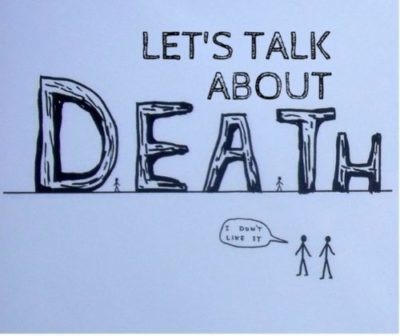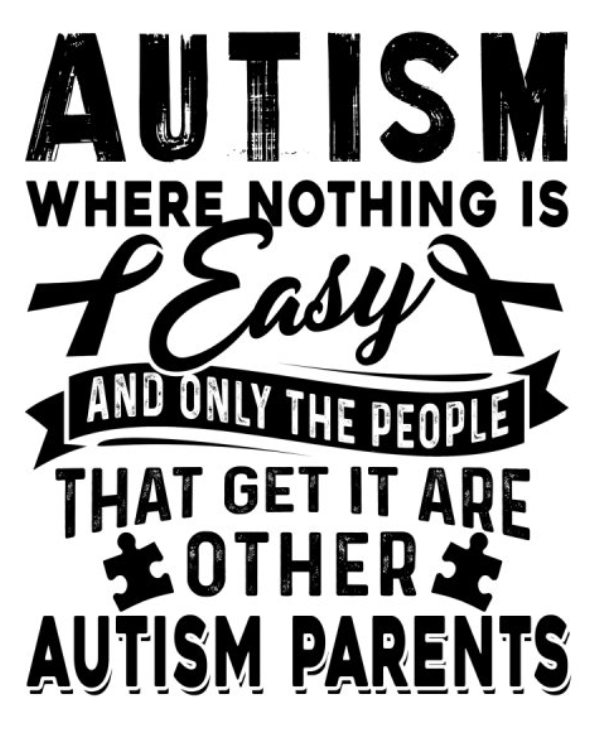- Have you ever felt at a loss for words when you heard about a death?
- Have you ever felt out of your depth when trying to help a child deal with the death of a loved one or someone they knew?
- Do you ever find yourself changing the conversation, walking out of the room, or just feeling uncomfortable if anyone is talking about death or dying?
Death is the one certainty in life; yet, the topic of death continues to be taboo in most societies. Every single person, at varying ages, will be confronted with death – death of a pet, grandparent, parent, sibling, teacher, co-worker, friend, and sometimes, a child. So, why are so many of us apprehensive to talk about death or feel so ill-prepared to deal with our grief or the grief of someone we care about?
Research shows that our concept of death influences our attitudes about death which either assists or hinders our coping with grief and loss (Neimeyer, Moser, & Wittkowski, 2003). In other words, our understanding about what happens to our existence (e.g., our body or our soul) when we die will influence our attitudes towards death – if we think death is good, bad, irrelevant, scary, peaceful, etc. If a person thinks that death is the cessation of all consciousness, the end of the line, or the final destination, they may fear death or feel regret for unresolved conflicts. They might feel intense sadness, emptiness, and loneliness after the death of a loved one. On the other hand, if a person thinks death is the changing of consciousness, or a partial loss of consciousness (e.g., not physically present, but being present in other ways like in the hearts and memories of loved ones or being spiritually present), then they may accept death as part of the natural cycle of life. They might also feel sad as well as relieved, or even happy, that their loved one has gone to another place or is still with them in some way. Death anxiety (fear of death) and death acceptance (making peace with the idea that all things that live must die) are influenced by our understandings of and attitudes toward death.
The development of our death concept (our understanding of death) begins in childhood, usually around 5 years of age. Between the ages of 5 and 11 years, children often go through four different developmental stages in their understanding of death (Speece & Brent, 1984). The first stage is understanding the irreversibility of death. In other words, death is permanent – when people die, they cannot become “undead”. Usually around the same time, children begin to accept the non-functionality of death. In other words, once someone dies, their body ceases to be functional. They cannot hear or see us. Between the ages of 7-10 years old, children begin to accept the universality of death. All things that live must die. The final stage of understanding death, usually by 11 years of age, is accepting the causality of death. People die for a reason (e.g., their organs stop working, they get hit by a car, they have a disease that impedes the body’s ability to function). More recent research about the development of death concepts also suggests a fifth developmental stage called noncorporeal continuation (Cox, Garrett, & Graham, 2005; Speece & Brent, 1996). This is the idea that there might be more than just two stages of existence (alive and dead); but rather, that some element of a person’s existence continues beyond the physical death (e.g., reincarnation or the afterlife, often influenced by religious or spiritual beliefs).
One of the best ways to cope with grief and loss is to talk about death openly. Think about and discuss our understandings of death. What is our death concept? How has it evolved since childhood? What do our children, parents, or friends think about death? Talking about death does not expedite its arrival, but it does help us prepare for the inevitability of death in our lives. Children have a natural curiosity about death. Sometimes that curiosity changes into fear – fear of the death of a loved one or of their own death. This, too, is a natural part of development. But remember, death anxiety and death acceptance is shaped by our attitudes about death. We need to understand our own attitudes about death to help our children develop their own.
Tips for talking to children about death
- Be open on honest
- Talk about death before it happens in your family.
- “Start from a place of shared truth and being led by the child as much as you can.”
- Keep your language clear, don’t use euphemisms like “they passed away”
- Let your children lead the conversations; ask them what they think has happened, rather than bombarding them with information
- Show your children it’s OK to be sad
- Kids can’t sit with “big feelings” for too long, so plan a fun activity for after your talk
- Keep memories alive — make a scrapbook about someone who died, visit their favourite place or cook a recipe they loved
https://www.abc.net.au/life/play-school-teaching-kids-about-death-and-grief/11391804
If you, or someone you know is struggling with a death or the dying process, give us a ring at Your Mind Matters. We’re here to help.
References
Bonoti, F., Leondari, A., & Mastora, A. (2013). Exploring children’s understanding of
death: through drawings and the death concept questionnaire. Death Studies, 37(1), 47-60.
Cox, M., Garrett, E., & Graham, J. A. (2005). Death in Disney films: Implications for children’s
understanding of death. Omega-Journal of Death and Dying, 50(4), 267-280.
Neimeyer, Moser, R. P., & Wittkowski, J. (2003). Assessing attitudes toward dying and
death: Psychometric considerations. Omega-Journal of Death and Dying, 47(1), 45-76.
Speece, M. W., & Brent, S. B. (1984). Children’s understanding of death: a review of
three components of a death concept. Child Development, 55(5), 1671-1686. doi:10.2307/1129915







